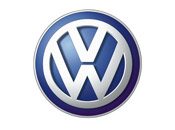Lower Your 2000 Volkswagen GTI Insurance Cost
Comparing car insurance rates is not really something drivers like to do, but regardless it’s required in order to drive legally.
Quick Insurance Coverage Quotes
All the larger insurance coverage companies like Progressive, Geico, Allstate and State Farm allow you to get prices for coverage on the web. Getting online rates doesn’t take a lot of time as you just enter the coverage amounts you desire into the quote form. When complete, the system automatically orders reports for credit and driving violations and returns a price quote based on these factors.
Quoting online helps simplify price comparisons, but the process of having to visit multiple sites and complete many quote forms is monotonous and tiresome. But it’s very important to get many rate quotes if you want to find a better rate.
The preferred way to find cheaper rates is to use a quote form to get prices from many companies. This type of form saves time, requires much less work on your part, and makes online quotes much more efficient. After your information is entered, your coverage is rated and you can select your choice of the quotes returned.
If one or more price quotes are lower than your current rates, you simply finish the application and buy the policy. It just takes a couple of minutes and may result in a nice savings.
In order to find out what other companies charge, simply click here to open in new window and enter your information. To compare your current rates, we recommend that you enter the limits and deductibles as close as possible to your current policy. This helps ensure you’re receiving comparison quotes using the exact same coverages.
Do I just need basic coverages?
When buying coverage for your personal vehicles, there isn’t really a perfect coverage plan. Every situation is different.
For example, these questions could help you determine whether your personal situation would benefit from an agent’s advice.
- Am I covered by my employer’s commercial auto policy when driving my personal car for business?
- Am I covered when driving someone else’s vehicle?
- Should I buy additional glass protection?
- Do I need roadside assistance coverage?
- Do I really need UM/UIM coverage?
- Are my tools covered if they get stolen from my vehicle?
If you don’t know the answers to these questions but you know they apply to you, you may need to chat with an insurance agent. If you want to speak to an agent in your area, complete this form.
Car insurance coverage information
Knowing the specifics of your insurance policy can help you determine appropriate coverage at the best deductibles and correct limits. Insurance terms can be confusing and even agents have difficulty translating policy wording.
Uninsured/Underinsured Motorist (UM/UIM) – This protects you and your vehicle from other drivers when they either are underinsured or have no liability coverage at all. Covered losses include hospital bills for your injuries as well as your vehicle’s damage.
Since many drivers have only the minimum liability required by law, their limits can quickly be used up. This is the reason having UM/UIM coverage should not be overlooked. Frequently your uninsured/underinsured motorist coverages are identical to your policy’s liability coverage.
Collision coverage – This coverage pays for damage to your GTI caused by collision with another car or object. A deductible applies and then insurance will cover the remainder.
Collision insurance covers things like crashing into a ditch, backing into a parked car and hitting a parking meter. Collision is rather expensive coverage, so you might think about dropping it from vehicles that are older. You can also increase the deductible to get cheaper collision coverage.
Comprehensive insurance – Comprehensive insurance pays to fix your vehicle from damage OTHER than collision with another vehicle or object. You first must pay your deductible and the remainder of the damage will be paid by comprehensive coverage.
Comprehensive insurance covers claims like damage from flooding, theft, falling objects, damage from a tornado or hurricane and hitting a deer. The maximum amount you’ll receive from a claim is the market value of your vehicle, so if the vehicle’s value is low it’s not worth carrying full coverage.
Coverage for liability – Liability insurance will cover damage or injury you incur to other’s property or people by causing an accident. This coverage protects you against claims from other people, and doesn’t cover damage to your own property or vehicle.
Split limit liability has three limits of coverage: bodily injury per person, bodily injury per accident and property damage. Your policy might show limits of 25/50/25 which means $25,000 in coverage for each person’s injuries, a total of $50,000 of bodily injury coverage per accident, and property damage coverage for $25,000. Occasionally you may see one number which is a combined single limit that pays claims from the same limit with no separate limits for injury or property damage.
Liability insurance covers claims like bail bonds, loss of income, pain and suffering and structural damage. How much liability should you purchase? That is a decision to put some thought into, but you should buy as high a limit as you can afford.
Med pay and Personal Injury Protection (PIP) – Coverage for medical payments and/or PIP provide coverage for immediate expenses such as nursing services, EMT expenses and dental work. They are often utilized in addition to your health insurance plan or if there is no health insurance coverage. It covers not only the driver but also the vehicle occupants in addition to getting struck while a pedestrian. PIP is not universally available and gives slightly broader coverage than med pay

